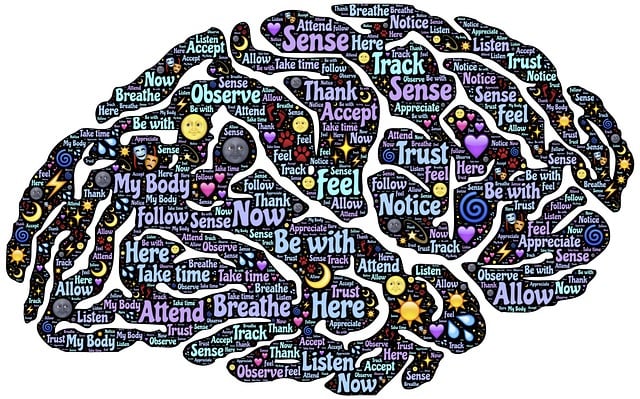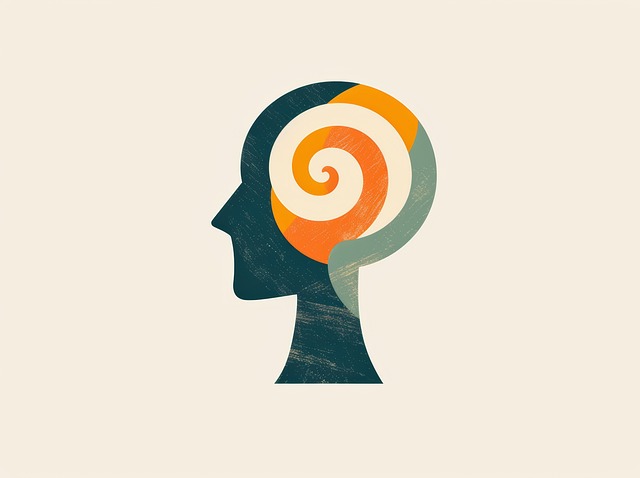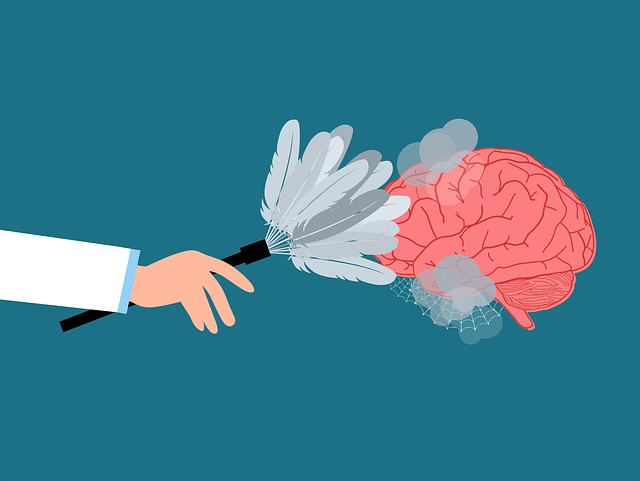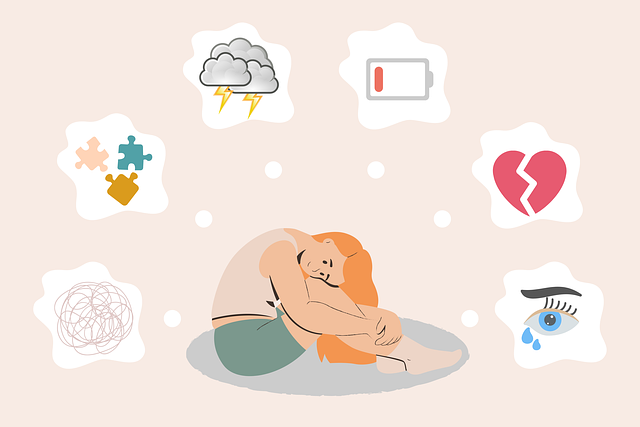Highlands Ranch Anxiety Therapy is renowned for its nuanced approach to mental illness diagnosis, addressing complex symptoms and personal factors. They employ evidence-based techniques like Mindfulness Meditation and CBT, along with digital tools, to enhance accuracy. Through specialized services, crisis intervention, and policy advocacy, they strive for systemic improvements in mental health care. Their comprehensive model includes holistic practices and innovative tools, ensuring tailored treatments and improved patient outcomes. Recent focus on training and education aims to bridge diagnostic gaps, fostering a more inclusive and effective mental health environment in Highlands Ranch.
Mental illness diagnosis accuracy is a critical aspect of healthcare, with significant implications for patient outcomes. This article explores the multifaceted efforts to enhance diagnostic precision, focusing on strategies employed by leading practices like Highlands Ranch Anxiety Therapy. We delve into the challenges faced, innovative techniques, and training programs aimed at improving mental health assessments. Additionally, we highlight patient-centered approaches that promise better diagnosis and treatment results, emphasizing the importance of accurate mental illness identification.
- Understanding the Challenges of Mental Illness Diagnosis
- The Role of Highlands Ranch Anxiety Therapy in Accurate Assessment
- Innovative Techniques for Enhancing Diagnostic Accuracy
- Training and Education Programs for Healthcare Professionals
- Patient-Centered Approaches to Improve Diagnosis and Treatment Outcomes
Understanding the Challenges of Mental Illness Diagnosis

Mental illness diagnosis can be a complex process due to the nuanced nature of human emotions and behaviors. The vast array of symptoms associated with various mental health conditions often overlaps, making it challenging for professionals to discern specific disorders accurately. This complexity is further exacerbated by the fact that individuals may present unique combinations of signs, influenced by their personal histories, cultural backgrounds, and coping mechanisms. In Highlands Ranch Anxiety Therapy, for instance, therapists must navigate these complexities to provide appropriate care.
Emotional well-being promotion techniques, such as Mindfulness Meditation and Coping Skills Development, are increasingly recognized as valuable tools in enhancing diagnosis accuracy. These approaches not only aid individuals in managing their symptoms but also offer insights into their emotional landscapes, enabling professionals to make more informed assessments. By integrating these practices, mental health providers can foster a deeper understanding of patients’ internal experiences, thereby improving diagnostic reliability and tailoring treatments more effectively.
The Role of Highlands Ranch Anxiety Therapy in Accurate Assessment

Highlands Ranch Anxiety Therapy plays a pivotal role in enhancing mental illness diagnosis accuracy by offering specialized services tailored to address anxiety-related disorders. Their team of seasoned professionals employs evidence-based therapeutic approaches, such as cognitive-behavioral therapy (CBT), to help individuals navigate and overcome their symptoms. By focusing on the intricate interplay between thoughts, feelings, and behaviors, Highlands Ranch Anxiety Therapy facilitates a deeper understanding of the root causes behind anxiety disorders, ensuring more precise diagnoses.
This holistic approach extends beyond individual therapy sessions, incorporating crisis intervention guidance to support clients during acute episodes. Additionally, the center advocates for Mental Health Policy Analysis and Advocacy, pushing for systemic changes that promote accessible and effective mental health care. By combining clinical expertise with community engagement, Highlands Ranch Anxiety Therapy contributes to a more nuanced Mental Health Policy landscape, reflecting Mind Over Matter Principles that empower individuals to take control of their well-being.
Innovative Techniques for Enhancing Diagnostic Accuracy

In recent years, mental health professionals have embraced innovative techniques to enhance diagnostic accuracy, particularly in addressing common issues like Highlands Ranch anxiety therapy. These advancements go beyond traditional methods and leverage cutting-edge research and technology to provide more precise diagnoses. For example, cognitive behavioral therapy (CBT), a well-established approach, is now enhanced with digital tools that enable personalized treatment plans tailored to individual patient needs. This precision allows therapists to focus on specific aspects of anxiety or mood disorders, leading to improved outcomes for patients seeking anxiety relief.
Additionally, emotional well-being promotion techniques have evolved to include mindfulness and meditation practices, which not only aid in stress reduction but also provide valuable insights into a patient’s emotional state. These practices help therapists identify subtle changes in mood management, enabling them to make more nuanced diagnostic decisions. By combining evidence-based therapies with innovative tools, mental health professionals can offer more effective support, ensuring patients receive the most accurate and tailored care for their unique challenges.
Training and Education Programs for Healthcare Professionals

In recent years, efforts to enhance mental illness diagnosis accuracy have gained significant momentum, with a particular focus on training and education programs for healthcare professionals. These initiatives aim to bridge the gap between symptom recognition and accurate diagnoses, ensuring that individuals in Highlands Ranch Anxiety Therapy receive the most appropriate care. Programs emphasizing evidence-based practices and advanced diagnostic techniques are being implemented across various healthcare settings. For instance, workshops delve into the intricacies of diagnosing complex conditions, fostering a deeper understanding of mental health disorders and their multifaceted nature.
The incorporation of Mind Over Matter Principles and Positive Thinking strategies within these training sessions empowers healthcare providers to offer trauma support services that go beyond traditional treatments. By equipping professionals with the tools to navigate the nuances of mental illness, these educational efforts ultimately strive to improve patient outcomes and enhance the overall quality of care provided in Highlands Ranch Anxiety Therapy settings.
Patient-Centered Approaches to Improve Diagnosis and Treatment Outcomes

In recent years, there’s been a growing emphasis on patient-centered approaches to mental health care, with a focus on improving diagnosis and treatment outcomes. These innovative strategies recognize that every individual’s experience with mental illness is unique, necessitating personalized care plans tailored to their specific needs and preferences. By prioritizing patient engagement, active listening, and collaborative decision-making, healthcare providers in Highlands Ranch Anxiety Therapy can foster a supportive environment that encourages open communication. This, in turn, enhances the accuracy of diagnoses and ensures more effective treatment strategies are implemented.
Risk Management Planning for Mental Health Professionals plays a crucial role in these efforts. By equipping practitioners with the tools to navigate complex cases and manage risks effectively, healthcare providers can deliver consistent, high-quality care. Additionally, Mental Illness Stigma Reduction Efforts and Healthcare Provider Cultural Competency Training contribute significantly by promoting understanding, empathy, and sensitivity toward diverse patient populations. These holistic initiatives collectively work towards creating a more inclusive and supportive mental health landscape in Highlands Ranch and beyond.
Mental illness diagnosis accuracy has seen significant advancements, driven by innovative techniques like those offered by Highlands Ranch Anxiety Therapy. By combining advanced assessment methods with comprehensive training programs for healthcare professionals, we can enhance patient-centered approaches and ultimately improve treatment outcomes. Continuous efforts in these areas are crucial to ensuring that individuals receive timely, accurate, and effective mental health care.














